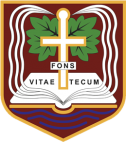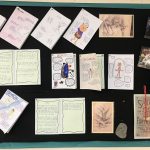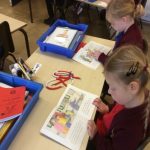Phonics Intent
At Welwyn St. Mary’s Primary School, we believe that all our children can become fluent readers and writers. This is why we teach reading through Little Wandle Letters and Sounds Revised, which is a systematic and synthetic phonics programme. We start teaching phonics in Reception and follow the Little Wandle Letters and Sounds Revised progression, which ensures children build on their growing knowledge of the alphabetic code, mastering phonics to read and spell as they move through school.
As a result, our intent is that all our children are able to tackle any unfamiliar words as they read. At Welwyn St. Mary’s Primary School, we also model the application of the alphabetic code through phonics in shared reading and writing, both inside and outside of the phonics lesson and across the curriculum. We have a strong focus on language development for our children because we know that speaking and listening are crucial skills for reading and writing in all subjects.
Reading Intent
Reading is at the heart of the curriculum in our school: it opens doors to lifelong learning and brings great pleasure to our school community. Our purpose is to ensure that all our pupils become successful readers early in their school journey and leave us able to read fluently, with understanding and enjoyment, to enrich their learning, knowledge and experience. It is our intention that our children develop a love of reading and recognise its value in their lives; we encourage them to read widely across a range of genres and throughout the curriculum so they will be able to use reading to help them learn and to ensure they are empowered both personally and in society, without barriers to their aspirations.
Using the aims and objectives from the National Curriculum and Early Years Foundation Stage alongside Herts for Learning Education progression documents which ensures that our own reading curriculum is well sequenced, broad and balanced, we aim to:
- Develop children’s experience of, and ability to, read for both pleasure and purpose.
- Create an environment where reading is seen as enjoyable, important and highly valued.
- Prioritise the importance of early reading and deliver a robust SSP programme (Little Wandle)
- Enable children to read with accuracy, fluency, expression and understanding to support comprehension.
- Enable children to develop active reading skills and for children to become independent, critical readers who make informed choices about their reading.
- Enable children to read in order to access the curriculum in meaningful and rewarding ways.
- Develop in pupils a love of books, and literature, that will not only support their learning, but also enrich their lives.
- Enable children to develop skimming and scanning techniques and employ text marking, selection and synthesising to research and appraise texts from print and digital sources.
- To encourage and develop reading through a strong home-school partnership
Writing Intent
At Welwyn St. Mary’s our intent is for all our pupils to leave Year 6 as independent, confident writers, who have the skills to succeed in secondary school and beyond. Our curriculum is designed to support children to communicate their knowledge, ideas and emotions through their writing with confidence. We want pupils to acquire a wide vocabulary, a solid understanding of grammar and to be able to spell new words by effectively applying the spelling patterns and rules they learn throughout their time in primary school. We want them to write clearly, accurately and coherently, adapting their language and style in a range of context and for varied purposes and audiences. We believe that all pupils should be encouraged to take pride in the presentation and organisation of their writing, in part by developing a good, joined, handwriting style by the time they move to secondary school. We believe that all good writers refine and edit their writing over time, so we want children to develop independence in being able to identify their own areas for improvement in all pieces of writing, editing their work effectively throughout the writing process.
Using the aims and objectives from the National Curriculum and Early Years Foundation Stage alongside Herts for Learning Education progression documents which ensures that our own writing curriculum is well sequenced, broad and balanced, we aim to:
- Teach children to write coherently and with meaning, as an essential means of communication and learning across the curriculum.
- Give a clear purpose and audience for writing.
- Provide opportunities for children to write creatively using a range of different styles and for different purposes.
- Give children access to a wide range of reading material including: non-fiction, stories, poetry and play scripts. Texts will act as models for their own writing and sources of meaning and enjoyment.
- Provide a variety of appropriate stimuli to initiate an imaginative, personal and creative response in children’s writing e.g. artefacts, role play, personal experience, visitors, trips, film and other media.
- Incorporate varied elements of Speaking and Listening into the teaching cycle to inspire and inform writing.
- Model the writing process and skills in shared writing.
- Help children to see that grammar, syntax and spelling are integral to effective and meaningful writing.
- Promote respect and create opportunities for children of all writing abilities to express and share their work with others and to feel it is valued.
- Promote a positive attitude to the presentation of writing and encourage children to improve the overall quality of their work through drafting, revision and other aspects of extended writing.
- Encourage the use of ICT in writing and highlight its effectiveness in the editing and publishing process.
- Provide cross–curricular purposes and creative opportunities for writing.
- Encourage children to illustrate their work and to give thought to possibilities for display and display children’s writing in an effective way thus highlighting good practice.
- Provide effective feedback and encourage dialogue and reflection and dedicated time to polish and improve writing through editing.
- Foster the enjoyment of writing and a recognition of its value.
Speaking and Listening Intent
We want to inspire children to be confident in the art of speaking and listening and use discussion to communicate and further their learning. We aim to develop every pupil’s confidence in their abilities to communicate through the acquisition and practise of speaking and listening skills. We aim for teaching and learning in speaking and listening to be creative and provide children with the skills and understanding necessary to:
- Speak clearly, respectfully, coherently and appropriately for a variety of audiences and purposes
- Listen to the spoken word attentively, with understanding, pleasure and empathy
- Have an interest in words and their meanings to develop a growing vocabulary
- Have the ability to use speaking and listening skills to further their own and each other’s learning and development – for example, through pupil voice
- Use discussion to further thinking skills and enhance depth of thought and reasoning.
- English year 6
- Year 1
- EYFS English curriculum map (847.69KB)
- EYFS English progression (851.95KB)
- Spoken Language Progression (120.87KB)
- Year 1 Phonics Progression (556.21KB)
- EYFS Phonics Progression of Skills (533.24KB)
- WSM Reading Criteria Progression (273.75KB)
- WSM Writing Criteria Progression (251.17KB)
- Year 3 Reading guidance (2.48MB)
- Year 4 reading guidance (528.10KB)
- Year 5 reading guidance (1.04MB)
- Year 6 reading guidance (1.15MB)
- Reading record guidance (327.61KB)
- Helping your child with reading (575.08KB)
- English Reading List (300.86KB)


